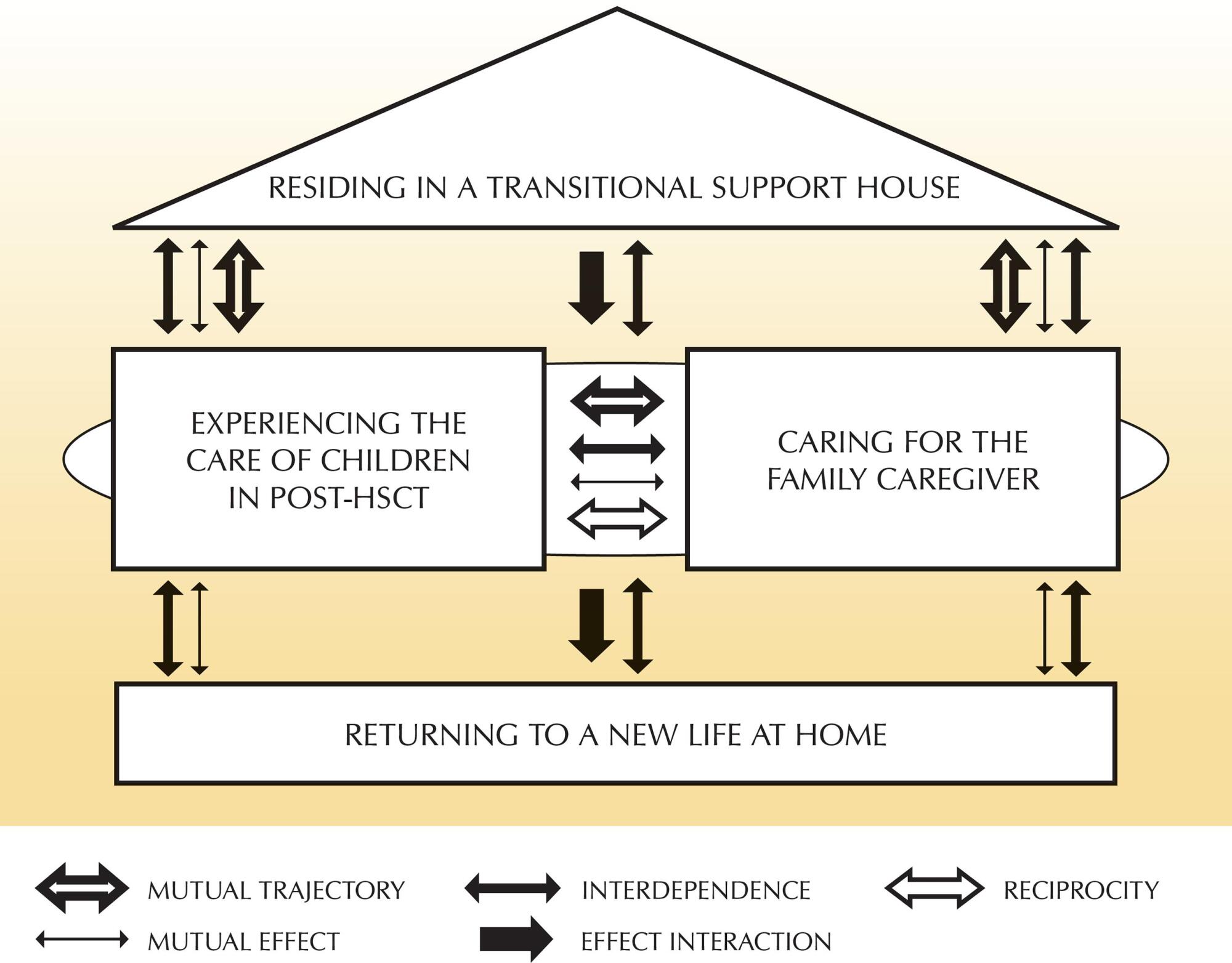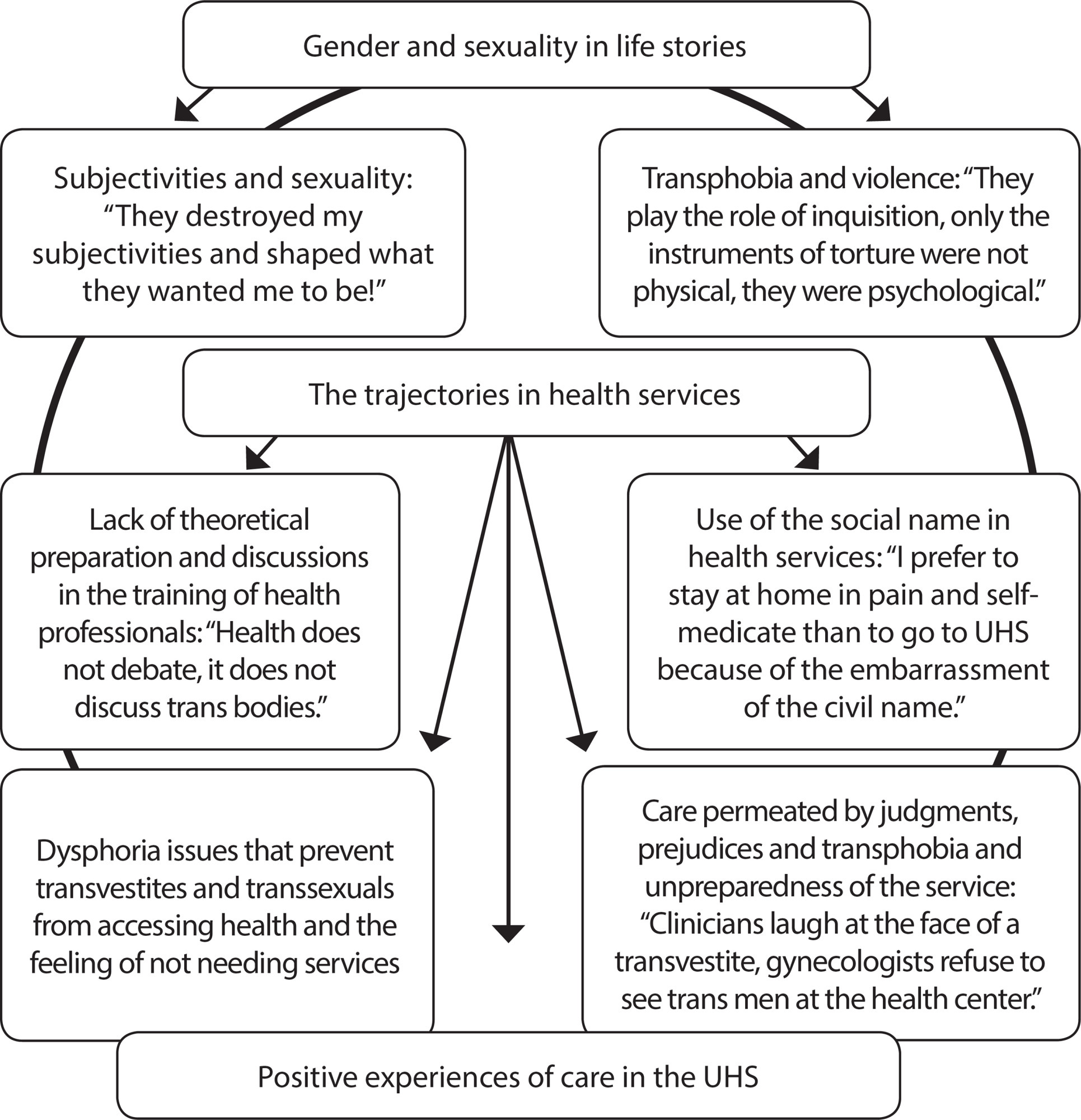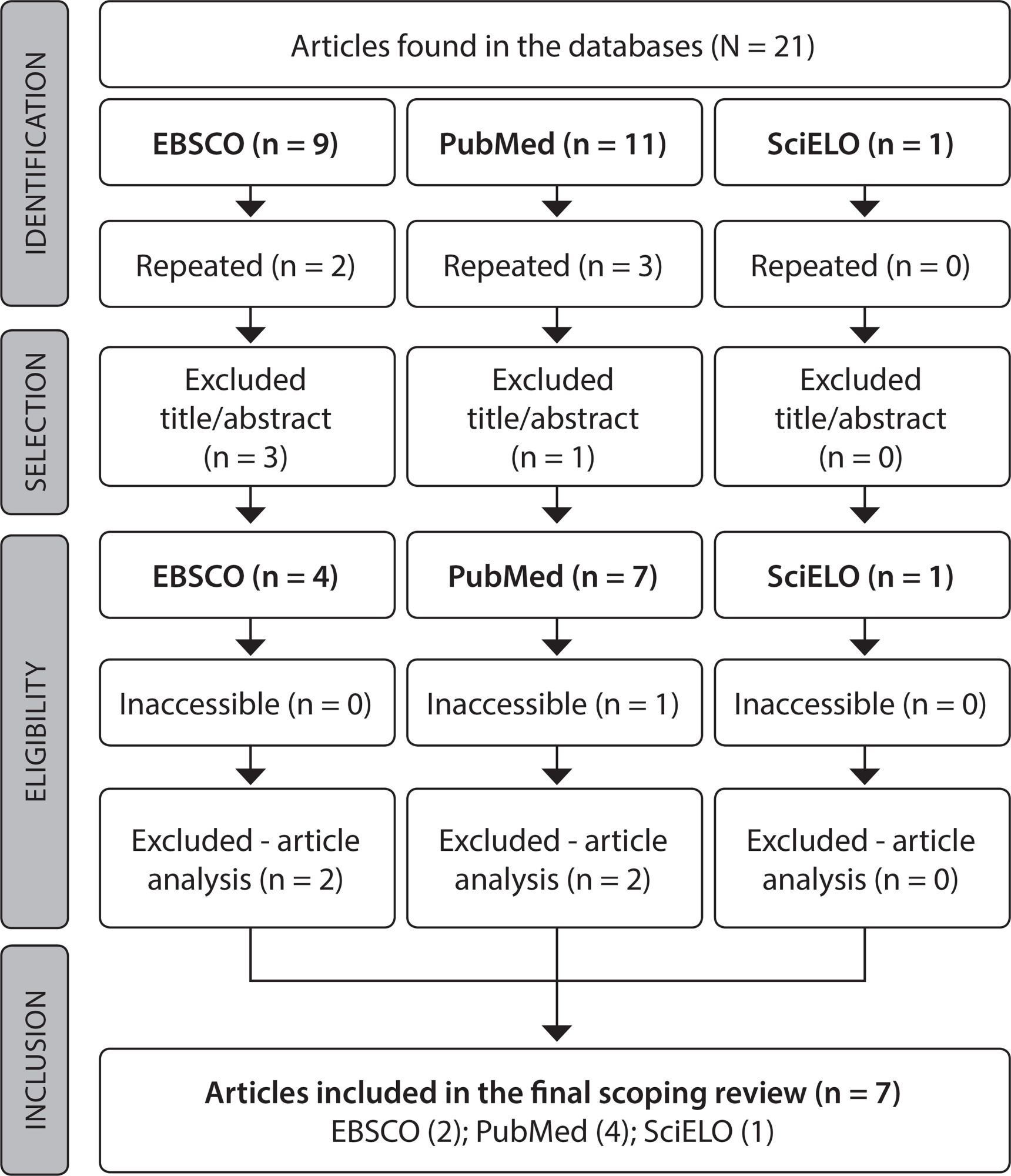-
RESEARCH01-01-2016
Knowledge of healthcare professionals on the evaluation and treatment of neonatal pain
Revista Brasileira de Enfermagem. 2016;69(3):552-558
Abstract
RESEARCHKnowledge of healthcare professionals on the evaluation and treatment of neonatal pain
Revista Brasileira de Enfermagem. 2016;69(3):552-558
DOI 10.1590/0034-7167.2016690319i
Views0See moreABSTRACT
Objective:
to identify knowledge of healthcare professionals on the management, evaluation and treatment of pain in a neonatal unit in a municipality of Rio de Janeiro.
Method:
descriptive, exploratory study with quantitative analysis. Data were analyzed using the software R. Core Team
Results:
of the 96 healthcare professionals who participated in the study, 42 nursing aides/technicians responded, along with 22 nurses, 20 physicians and 2 physical therapists. The results showed that 40.5% of the nursing aides/technicians, 50% of the physicians and 50% of the physical therapists confirmed that they coordinate/perform/assist in the care of babies’ pain while performing procedures (lumbar puncture, chest tube insertion and central line). There was a significant difference of agreement in relation to the nursing aides/technicians and physicians. Most (69.8%) of the healthcare professionals knew of some non-pharmacological measure effective for relief of acute pain.
Conclusion:
there is a need for an educational intervention program, with participation of those involved, in the process to change professional practice.
-
RESEARCH01-01-2016
Moments for hand hygiene in Material and Sterilization Center
Revista Brasileira de Enfermagem. 2016;69(3):546-551
Abstract
RESEARCHMoments for hand hygiene in Material and Sterilization Center
Revista Brasileira de Enfermagem. 2016;69(3):546-551
DOI 10.1590/0034-7167.2016690318i
Views0See moreABSTRACT
Objective:
to characterize the moments when there is a need for hand hygiene (HH) by employees who work in Material and Sterilization Center (MSC).
Method:
we conducted a descriptive cross-sectional study in the MSC of a large hospital, from July to November 2012, in Goiânia, state of Goiás, Brazil. Data obtained through observation of workers, following a previously evaluated and tested checklist.
Results:
to the dirty area, standardized moments of HH were enough. In the clean area, “Extra moments with indication” for HH, resulting from the work process, such as: after disinfecting benches, after verification and inventory of consigned products, before assembling boxes/trays, before loading and unloading the autoclave, before handling and distributing health care products, among others, were necessary.
Conclusion:
the moments of HH in the dirty area coincide with indications of the clinical practice; and, in the clean area, characteristic moments of the work process were captured.
-
RESEARCH01-01-2016
The experience of family care in transitional support houses
Revista Brasileira de Enfermagem. 2016;69(3):538-545
Abstract
RESEARCHThe experience of family care in transitional support houses
Revista Brasileira de Enfermagem. 2016;69(3):538-545
DOI 10.1590/0034-7167.2016690317i
Views0See moreABSTRACT
Objective:
to present the theoretical model that represents the experience of care in transitional homes of support to families of children in a period of post-transplantation of hematopoietic stem cells.
Method:
grounded theory, performed with 18 participants from three different samples. For analysis, we used the QSR Nvivo10 software.
Results:
we elaborated four categories: living in the transitional support home; experiencing care of children in post-transplantation of hematopoietic stem cells; taking care of the family caregiver; and returning to a new life at home, which interrelate according to the theoretical code of the interactive family.
Conclusion:
this research contributes to understanding the experience of care in transitional support homes of families with children in post-transplantation of hematopoietic stem cells and subsidizes nursing and health actions provided to this population; it also contributes to the development of a hospital discharge guidance and care directed to this clientele.

-
RESEARCH01-01-2016
Health care for children and adolescents with HIV: a comparison of services
Revista Brasileira de Enfermagem. 2016;69(3):522-531
Abstract
RESEARCHHealth care for children and adolescents with HIV: a comparison of services
Revista Brasileira de Enfermagem. 2016;69(3):522-531
DOI 10.1590/0034-7167.2016690315i
Views0See moreABSTRACT
Objective:
compare the quality of different types of health care for children and adolescents with HIV, in the experience of family members and caregivers.
Method:
a cross-sectional study was conducted with 71 family members and caregivers, using the children’s version of the Primary Care Assessment Tool (PCATool-Brazil). The Mann-Whitney or Student’s t-test and Pearson’s chi-square or Fisher’s exact test were used for the analysis.
Results:
primary care services and, predominantly, specialized HIV services, were identified as the regular health care sources. There were no significant differences in quality, since their scores were close to the ideal level.
Conclusion:
the attributes of these services need to be improved, which would entail reformulating their structural and performance aspects. In addition, it is imperative to recognize primary health care as an integral place for promoting the health of children and adolescents with HIV.
-
RESEARCH01-01-2016
Nursing care in Specialized HIV/Aids Outpatient Services
Revista Brasileira de Enfermagem. 2016;69(3):515-521
Abstract
RESEARCHNursing care in Specialized HIV/Aids Outpatient Services
Revista Brasileira de Enfermagem. 2016;69(3):515-521
DOI 10.1590/0034-7167.2016690314i
Views0See moreABSTRACT
Objective:
to analyze the discourses about the care provided by nurses operating in Specialized HIV/Aids Outpatient Services in four public institutions of the city of Fortaleza, Ceará, Brazil.
Method:
descriptive and exploratory study with a qualitative approach, which used as a method the discourse analysis.
Results:
when titling the “care as negative”, such title came from the analogy proposed by Freud (1912) with the photographic negative, represented by what that care can configure from the unconscious movement, since nurses did not perceive themselves in the care actions developed by supporting the work of other occupational categories, contributing to maintain the ideology of biomedicine.
Conclusion:
it is necessary to justify and theorize a nursing clinical practice from epistemological issues of the profession, in such a way that nurses can understand their relevance within the care provided.
-
RESEARCH01-01-2016
Notification of health problems among nursing workers in university hospitals
Revista Brasileira de Enfermagem. 2016;69(3):507-514
Abstract
RESEARCHNotification of health problems among nursing workers in university hospitals
Revista Brasileira de Enfermagem. 2016;69(3):507-514
DOI 10.1590/0034-7167.2016690313i
Views0See moreABSTRACT
Objective:
to identify the health problems of nursing workers and describe their consequences.
Method:
an epidemiological, descriptive study with a quantitative approach. The survey was conducted through the Health Monitoring System for Nursing Workers (SIMOSTE) in three university hospitals in São Paulo within a 12-month period.
Results:
a total of 970 records related to health problems were identified; most of these were related to sick leave, occupational accidents with leave, absences, and occupational accidents without leave, with a predominance of musculoskeletal and respiratory system diseases, infectious and parasitic diseases, and nervous system diseases, among others. A total of 4,161 days of work were lost because of the mentioned health problems.
Conclusion:
the results evidence the need to propose preventive strategies to mitigate and reduce health problems in nursing workers.
-
RESEARCH01-01-2016
Association between self-care and hospital readmissions of patients with heart failure
Revista Brasileira de Enfermagem. 2016;69(3):500-506
Abstract
RESEARCHAssociation between self-care and hospital readmissions of patients with heart failure
Revista Brasileira de Enfermagem. 2016;69(3):500-506
DOI 10.1590/0034-7167.2016690312i
Views0See moreABSTRACT
Objective:
to assess the association between self-care and the number of hospital readmissions of patients with heart failure (ADHF) and test the applicability of two self-care assessment tools. longitudinal study, performed in a cardiology reference hospital in southern Brazil.
Method:
it included 82 patients with a mean age of 61.85±12.33 years, 57.3% male. The mean score of self-care assessment found the scales European Heart Failure Self-care Behavior Scale and Self-care Scale for Patients with Heart Failure was unsatisfactory.
Results:
it was observed an average of 2.57±1.66 rehospitalization last year for decompensated heart failure. There was a correlation between self-care scores with the number of hospital readmissions for decompensated HF. Education and age were associated to self-care of HF patients.
Conclusion:
both scales assess self-care in a relevant way, and correlated their indexes.
-
ORIGINAL ARTICLE10-28-2020
“Health does not discuss trans bodies”: Oral History of transsexuals and transvestites
Revista Brasileira de Enfermagem. 2020;73:e20190228
Abstract
ORIGINAL ARTICLE“Health does not discuss trans bodies”: Oral History of transsexuals and transvestites
Revista Brasileira de Enfermagem. 2020;73:e20190228
DOI 10.1590/0034-7167-2019-0228
Views0See moreABSTRACT
Objectives:
to understand the life stories and itineraries of transvestites and transsexuals in health services.
Methods:
study with a qualitative approach, anchored in the methodological framework of Oral History. Interviews were conducted and thematically analyzed.
Results:
two themes emerged: 1) gender and sexuality in life stories; and 2) the trajectories in health services. These revealed the challenges in the process of recognizing gender identity before the family and society. The reports show the dilemmas that transsexuals and transvestites face in health care, which ends up generating the removal of this population from services.
Final Considerations:
it has been demonstrated that Oral History can increase knowledge, especially about life histories and trajectories in the health services of transvestites and transsexuals; in addition, information was offered that can assist managers and health professionals in making decisions or caring for these people.

-
ORIGINAL ARTICLE07-10-2020
Working conditions and depression in hospital emergency service nurses
Revista Brasileira de Enfermagem. 2020;73:e20180952
Abstract
ORIGINAL ARTICLEWorking conditions and depression in hospital emergency service nurses
Revista Brasileira de Enfermagem. 2020;73:e20180952
DOI 10.1590/0034-7167-2018-0952
Views0ABSTRACT
Objective:
to analyze the presence, intensity and factors related to working conditions for depressive symptoms in hospital emergency nurses in the east of São Paulo.
Methods:
a descriptive, exploratory, quantitative and qualitative study, which applied psychometric scales and interview script.
Results:
nurses (95.24%) had depressive symptoms by the assessment scales by the observer, most with mild and moderate intensity. Inadequate working conditions led to suffering. Factors that trigger depressive symptoms were: disorganized work; harmful relationship with immediate management; inappropriate physician behavior; aggressions; lack of inputs, infrastructure and human resources; professional devaluation. Identified professionals with depressive symptoms who, because they were unaware of being affected by the disorder, did not seek treatment, continued to perform activities that compromised their physical and mental health, promoting damage to the assistance provided.
Final considerations:
high frequency of depressive symptoms. The precarious work environment negatively influenced the care and development of depressive symptoms.
Keywords:DepressionEmergency NursingHospital Emergency ServicesOccupational HealthWorking ConditionsSee more -
Chemsex and its repercussions on the health of men who have sex with men (MSM): a global health perspective
Revista Brasileira de Enfermagem. 2023;76(3):e20230004
Abstract
Chemsex and its repercussions on the health of men who have sex with men (MSM): a global health perspective
Revista Brasileira de Enfermagem. 2023;76(3):e20230004
DOI 10.1590/0034-7167-2023-0004
Views0See moreABSTRACT
Objectives:
to discuss the repercussions of chemsex on the health of men who have sex with men (MSM), contextualizing it in a global health scenario and pointing out the implications for nursing care.
Methods:
theoretical-reflexive study based on scientific literature and concepts related to global health.
Results:
we present the epidemiology of the chemsex phenomenon, the main demands of the field, the reasons why it has become a global public health problem, and the implications for nursing practice.
Final Considerations:
chemsex is growing in all age groups of MSM and is globally benefiting from location-based applications to gain magnitude, finding an important potential audience in the migrant population. Nursing structures can help accelerate the proposal and implementation of biomedical and behavioral measures to address chemsex in its entirety, qualifying care and inducing teamwork with interprofessional collaboration.
-
ORIGINAL ARTICLE05-24-2021
Critical thinking in nursing training: evaluation in the area of competence Education in Health
Revista Brasileira de Enfermagem. 2021;74:e20200979
Abstract
ORIGINAL ARTICLECritical thinking in nursing training: evaluation in the area of competence Education in Health
Revista Brasileira de Enfermagem. 2021;74:e20200979
DOI 10.1590/0034-7167-2020-0979
Views0ABSTRACT
Objective:
To analyze the constitution of critical thinking in nursing training in the approach by competence and the integrated curriculum, considering the evaluation process by capturing its challenges, and proposing overcoming strategies.
Methods:
Qualitative. In the first phase of data collection, interviews were conducted with twenty-four professors, nine preceptors, and fifteen students to reconstruct the profile of competence, and in the second phase, a workshop to validate the profile identified challenges and proposals. The Collective Subject Discourse was used to analyze the interviews and the holistic competence reference in reconstructing the profile.
Results:
The critical thinking is built based on experiences in the world of work, and evaluation is the conductor of reflections towards emancipation.
Final considerations:
It signals the importance of professor training in the learning evaluation and working with the collective construction of subjects to overcome challenges that happen in the changes of training.
Keywords:Competency-Based EducationEmployee Performance AppraisalNursesProfessional CompetenceThinkingSee more -
REVIEW11-25-2020
Nurse’s interventions in preventing falls in hospitalized children: scoping review
Revista Brasileira de Enfermagem. 2020;73:e20190409
Abstract
REVIEWNurse’s interventions in preventing falls in hospitalized children: scoping review
Revista Brasileira de Enfermagem. 2020;73:e20190409
DOI 10.1590/0034-7167-2019-0409
Views0See moreABSTRACT
Objectives:
map both nursing interventions for the prevention of falls in paediatric age during hospitalization and the instruments for assessing the risk of falls in paediatrics.
Methods:
scoping review according to the protocol of Joanna Briggs Institute, with acronym PCC (P – children, C – fall preventive nursing interventions and instruments for assessing the risk of falling, C – hospital admission), in three sources of information (EBSCO, PubMed and SciELO).
Results:
the sample consisted of seven articles. The education of the child/family is the basis of the interventions, and the instruments for assessing the risk of falling identified were: Humpty Dumpty Falls Scale, GRAF PIF, CUMMINGS, I’M SAFE and CHAMPS.
Conclusions:
the education of children/parents on preventive measures is important and should be reinforced during hospitalization, using different methodologies. The Humpty Dumpty Falls Scale was the most analyzed.

-
ORIGINAL ARTICLE06-14-2021
Mothers’ knowledge of premature newborn care and application of Kangaroo Mother Care at home
Revista Brasileira de Enfermagem. 2021;74(6):e20200717
Abstract
ORIGINAL ARTICLEMothers’ knowledge of premature newborn care and application of Kangaroo Mother Care at home
Revista Brasileira de Enfermagem. 2021;74(6):e20200717
DOI 10.1590/0034-7167-2020-0717
Views0See moreABSTRACT
Objective:
to identify mothers’ knowledge about premature newborn care and application of Kangaroo Mother Care at home.
Methods:
a descriptive, qualitative study carried out with 15 mothers of premature newborns in a reference Maternal and Child Hospital in northern Brazil using two semi-structured interviews with open- and closed-ended questions. The testimonies were analyzed using thematic analysis technique, proposed by Bardin.
Results:
two thematic categories originated: “Caring for a premature newborn at home: strengths and weaknesses” and “Applying Kangaroo Mother Care at home: new knowledge acquired during hospitalization”.
Final considerations:
the speeches of the interviewed mothers pointed out their knowledge about home care of premature NBs and understanding the importance of Kangaroo Mother Care, mainly acquired and improved with the guidance of professionals during hospitalization and application of the method, in addition to fears, possible difficulties in home care and the need to be better informed at hospital discharge.
-
ORIGINAL ARTICLE05-03-2021
Nursing care for patient in postoperatory heart surgery in the Intensive Care Unit
Revista Brasileira de Enfermagem. 2021;74(2):e20200163
Abstract
ORIGINAL ARTICLENursing care for patient in postoperatory heart surgery in the Intensive Care Unit
Revista Brasileira de Enfermagem. 2021;74(2):e20200163
DOI 10.1590/0034-7167-2020-0163
Views0See moreABSTRACT
Objective:
To investigate the critical nodes related to nursing care for patients in the postoperative period of cardiac surgery.
Methods:
Exploratory study with a qualitative approach. Data collected through semi-structured interviews with 27 members of the nursing team working in the Intensive Care Unit. Material submitted to thematic analysis.
Results:
Three categories emerged: Flaws in the professional qualification for patient care in the postoperative period of cardiac surgery; Team challenges concerning specific patient care in the postoperative period of cardiac surgery; and (dis) organization of work in the Intensive Care Unit and its impact on nursing care for patients in the postoperative period of cardiac surgery.
Final considerations:
Given the identification of the critical nodes, the professionals presented suggestions to overcome daily difficulties: investments in strategies for Permanent Education in Health; creation of tools to guide patient assistance in the postoperative of cardiac surgery; and provision of adequate human resources.
Search
Search in:
Nuvem de Tags
Aged (144) Atenção Primária à Saúde (239) COVID-19 (104) Cuidados de Enfermagem (269) Educação em Enfermagem (151) Educação em Saúde (139) Enfermagem (930) Estudos de Validação (131) Health Education (144) Idoso (208) Mental Health (149) Nursing (987) Nursing Care (306) Patient Safety (151) Primary Health Care (284) Qualidade de Vida (104) Quality of Life (106) Saúde Mental (145) Segurança do Paciente (150) Validation Studies (108)



